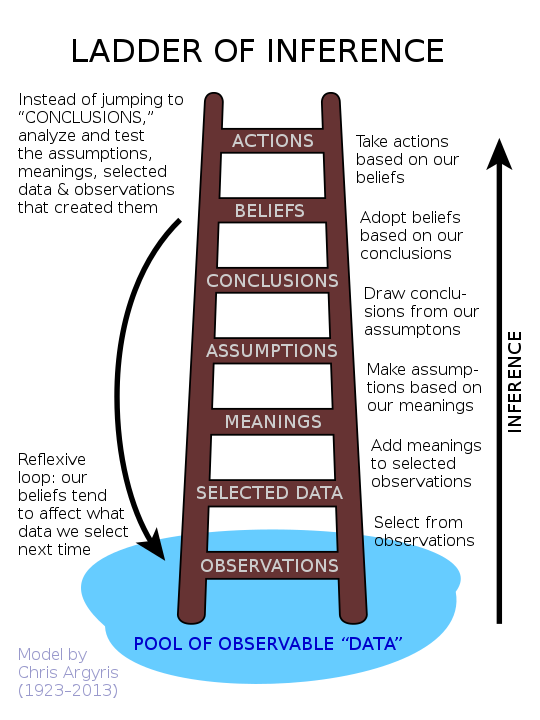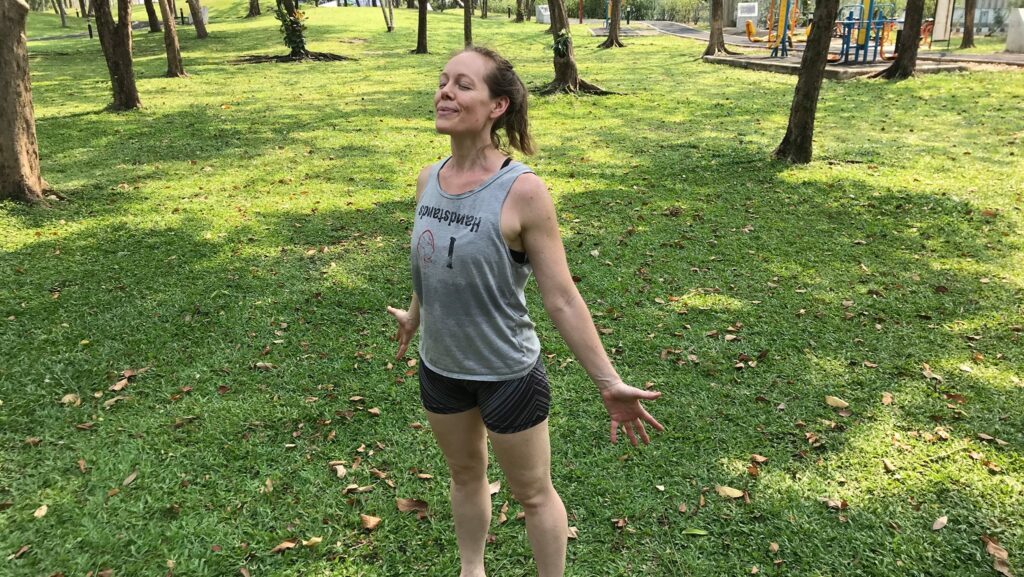I’ve been a defensive, competitive person most of my life. I have been quick to judge and slow to genuinely apologize. I have been caught mishearing or misunderstanding something and making assumptions.
I recognize that I come by this quite honestly, as it’s a characteristic that I see over and over again inside my family and extended family, as well as many people that I’ve surrounded myself with.
Ironically, this type of behavior is rewarded as a sign of intelligence to many. Coming back with a quick and witty comment or a snide remark signifies a quick and educated mind. Apologizing or showing remorse is viewed as failed or fragile.
I recall how my dad was quick to tell me, “Don’t apologize, daughter, it’s a sign of weakness!” when I said I was sorry. While I know it was a tongue-in-cheek antic, like every joke, there’s a lining of truth for the joker and their own beliefs.
Your circle
It’s not uncommon to surround yourself with people just like yourself. Let’s face it, it’s uncomfortable to be around people who challenge your paradigm or normal every time you’re with them. Humans are lazy by design, and we make patterns and systems to make our lives less chaotic.
This tendency creates an infinite loop of cause and effect that fits the worldview each of us is in. Getting tied up in the grind of this cycle goes unchallenged because we’re all busy, and we all have our own lives to attend to.
We find ourselves making decisions and judgments based on past experience and previous knowledge.
The ladder of inference
This pattern of taking in information, making sense of it, and making decisions based upon it is beautifully described and shown through the Ladder of Inference mental model.

As with many concepts, there’s a foundation that sets the tone for how all other elements will play out. The ladder of inference begins with what’s observed.
If you only receive certain types of information or everyone around you does things in the same way, then it can be observed that this is just the way that things are done.
From this smaller source of data, you will try and find meaning and make assumptions based on the prior information from previous data and observations.
These assumptions lead to conclusions that form your beliefs and finally inspire you to take actions. There is a reflexive loop of what you’re able to observe based upon your actions and the cycle continues.
Observing through the ladder of inference
I’ll take my personal example from above through the ladder of inference.
From a young age, I observed that it was wholly appropriate to poke fun at others, to be snarky, and to make jokes at someone else’s expense. I also observed that people were weak and unintelligent when they apologized for errors they’d made and that it was completely fine to judge others who did not whip back with some form of snide remark or insult as being slow or unintelligent.
With this data, I formed a personality that was sharp-tongued and opinionated. I made assumptions about others and formed a bias about people who took a moment to think before they spoke and apologized when they made a mistake.
I saw these people as competition, something to conquer because I could not understand how they were successful in the world with this sort of affect. How could they get their point across so clearly without including competition, defensiveness, and judgment?
My actions and life decisions in my late teens and all of my 20s were the outcome of an observed state, what I’ve heard called: “Come on bitches!”
I went to university straight out of high school because my guidance counselor suggested that I might do better starting off at a community college since I didn’t know what I wanted to study and I wanted to prove her wrong.
I became a Peace Corps Volunteer because a professor challenged the class to do things like volunteer to make the world better. I took that a step beyond and moved to a completely new place for two years to learn a new language and live rurally because I had to do more than what I perceived others were doing.
I got a job at a large agency because my boyfriend at the time was having a hard time getting hired there and I wanted to prove to him that it could be done.
I didn’t do yoga, I did Bikram hot yoga and participated in competitions (yes, yoga competitions…) to show that I was more intense than the next yogi.
I didn’t do dance, I did aerial dance on fabric and apparatus hanging from the ceiling so I could boast about it
Backing down the ladder
There was not one action that caused me to take a moment and see if my actions were true representations of the person I truly wanted to be.
However, the nagging question lingered: “How could they get their point across so clearly without including competition, defensiveness, and judgment?”
It’s what has helped me take steps back, rung after rung, to unpack the beliefs, conclusions, assumptions, meanings, selected data and observations that I’ve made my whole life.
What I’ve attempted to do in my journey to healing myself and my relationship with the greater world is to take steps outside of myself and find gratitude where I did not know it could be found.
The process involves taking time to observe, like really take the time, to observe a situation at hand, and to find alternative data. I try to see if there is a different meaning than that which I’ve found from prior experience.
Moving away from preconceived assumptions and conclusions has helped me to change my beliefs and the actions I take.
While there’s still a lot of work to be done, and I certainly find myself passing judgments or interrupting conversations with snarky remarks, the habit that I’ve been able to form is to apologize when I realize the negative impact it’s had on another person. It’s also caused me to take a moment to pause before making said comments so I can avoid having to apologize for them later or make up some excuse as to why I said them in the first place.
I’m grateful for tools like this one that break down complicated concepts into bite-sized chunks. I’m grateful for the opportunity to learn from them and practice integrating them into my life. I’m grateful to people in my past who did not give up on me even when I wasn’t the best version of myself.
Thank you for taking a moment to climb this ladder with me. I know I still have a long way to go with so many other pools of observable data to dive into, but I’m grateful for the opportunity to share this one here.
Sometimes it can be hard to keep track of our gratitude throughout the day. That’s why we added it as a healthy habit to track in The Agile Life Plan 4-week kick-start free course. Try it out for yourself 🙂





